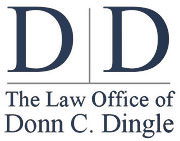 Intestacy. This is the word you wish not to have associated with your estate when you die. To die intestate is to die without a will. When this happens, the state will apply its own rules to determine how your estate will be shared among your descendants.
Intestacy. This is the word you wish not to have associated with your estate when you die. To die intestate is to die without a will. When this happens, the state will apply its own rules to determine how your estate will be shared among your descendants.
If you have a will, you get to say what specifically you wish to leave and to whom. Still, you must ask of your will, was it validly executed? Have you been married or divorced since your last will? Did you ever or would you like to execute a codicil to your will? Are any witnesses of the execution of the will also beneficiaries of it? How about a trust? These are questions that should concern us all. Yet, so many of us go through life without creating a will or endeavoring to know the answers to these basic questions. This oftentimes leads to arguing and even fighting among surviving relatives. The happy and healthy progeny you had hoped to leave behind could devolve into chaos and pain.
Let the Law Office of Donn C. Dingle help guide you through the process of will formation and execution.
The same goes for trusts. Would you like to create a trust? A trust is basically a vehicle you can use to transfer property from yourself (the grantor) to be held by another (the trustee) for the benefit of a third party (the beneficiary). Why a trust? Well, that depends on your specific situation. Some people create trusts to avoid taxes; others to avoid probate (although, now, all trusts are subject to the jurisdiction of the Probate and Family Court, but will only be supervised by the court when an interested party requests that it be done or as provided by law). Essentially, you have to figure out whether you need such an instrument in the first place. Our office can help you figure this question out.
You might wish to create a “trust under will,” also called a testamentary trust, where the trust provisions are described in the will itself. A testamentary trust is not funded until after the grantor dies and the will is submitted for probate. Some people like this vehicle when they need to transfer property to minors, who might otherwise take the property at 18 if held by a guardian or at 22 if held under the Uniform Transfer to Minors Act. The grantor, however, may wish to have the property held in trust until the child is older than that.
You might instead wish to create a living trust, also called an inter vivos trust, and which is created and executed while the grantor is still alive. It may be funded during the grantor’s lifetime but not necessarily. After the grantor’s death, these funds may pass into the trust by way of a “pour-over” clause in the grantor’s will. This clause basically causes the property to go into the trust and hence not to various individuals.
There are other kinds of trusts and other kinds of specific clauses, which can be tailored more to your specific needs.
The Law Office of Donn C. Dingle will help you execute your will or codicil or trust. We will see to it that your intentions are made plain and concrete and that you use the best vehicle to fit your needs.
